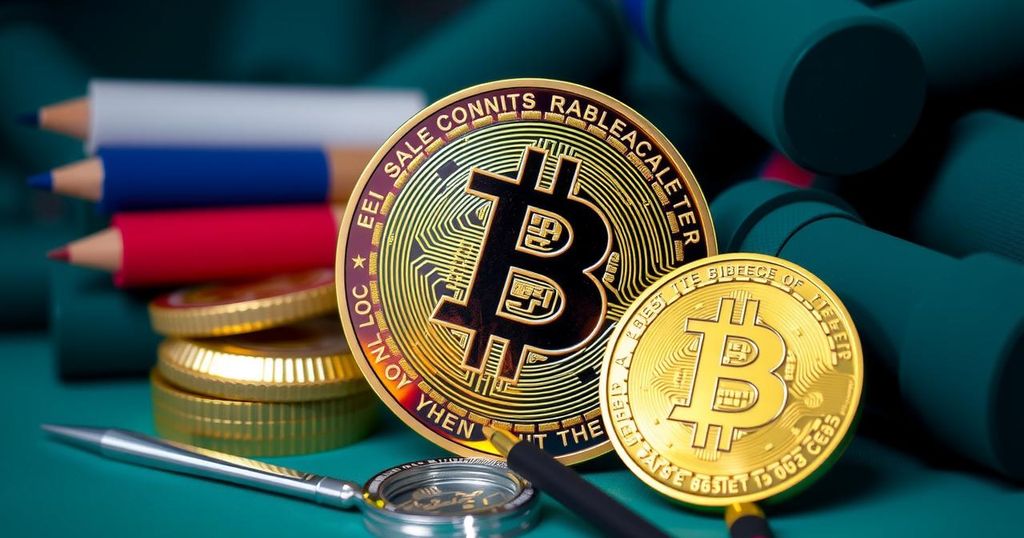The Cautious Dance of Governments Around Bitcoin
Bitcoin, since its debut in 2008, oscillates between being seen as an equitable currency and a facilitator of crime. Its pseudonymous nature enables capital flight and illicit activities, raising alarms among governments. Responses vary widely: while some nations adopt it, others ban it or regulate it stringently. As regulations continue to evolve, the tension between Bitcoin’s potential and governmental authority grows ever more complex.
Since its birth in 2008, Bitcoin has stirred a pot of debate and intrigue, captivating enthusiasts who see it as the dawn of a more equitable financial system. However, lurking in the shadows are critics who highlight its association with crime and its struggle for legal acceptance. The reality is a nuanced dance of both opportunity and danger, prompting governments worldwide to adopt varied stances toward this digital disruptor. While countries like El Salvador embrace Bitcoin as currency, others remain steadfast in their refusal to recognize it, instead opting to treat it like a property or commodity, or even prohibiting its use altogether. The European Union has recently stepped into the fray, creating a regulatory framework for cryptocurrency, spelling out the emerging role of policies governing this enigmatic currency.
At the core of governmental wariness lies Bitcoin’s ability to challenge established authority. It acts as a double-edged sword—allowing citizens to flee restrictive capital controls while simultaneously providing a veil for illicit activities. Bitcoin’s pseudonymous nature makes it hard for authorities to track transactions, thus fostering a bleak environment where crime festers. Furthermore, the energy consumption associated with Bitcoin mining raises alarms over environmental sustainability, harming efforts to combat climate change.
Governments are caught in a perpetual race to formulate regulations intended to protect users from the largely unchartered waters of the cryptocurrency industry. With the rapid rise of decentralized currencies, many nations find themselves grappling with protective measures as they untangle legal interpretations. The race to establish a framework continues, with precedents still in their infancy since the inception of cryptocurrency. Uncertainty reigns in jurisdictions where agencies interpret laws differently, creating a challenging atmosphere for crypto enterprises.
The crucial question of whether Bitcoin can indeed bypass governmental controls is highlighted by past instances like those in China, where citizens managed significant capital flights through cryptocurrency despite legal restrictions. In the shadows of these daring escapes lies a rising trend of criminal exploitation of Bitcoin for activities such as ransomware and illicit market transactions, further clouding its image.
As mining operations exert considerable environmental pressures, the U.S. struggles with how to address and potentially halt Bitcoin’s growth. The decentralized aspect of the currency implies that a unified global effort would be essential—a daunting task that history shows can be exceedingly complicated.
Does the future of money lie in Bitcoin? It appears that while it holds the promise of transforming financial landscapes, it is far from ready to dethrone fiat currencies. For now, the U.S. government has started to gather digital assets, including Bitcoin, seized from criminal activities, indicating that it clearly acknowledges Bitcoin’s growing relevance, yet simultaneously fears its unchecked power.
In summary, Bitcoin is more than a mere digital asset; it’s a catalyst of change and fear alike, presenting both opportunities and threats in the intricate dance of global finance. Governments are taking note, with positions fluctuating as the elusive nature of Bitcoin continues to challenge their control over monetary systems. As lawmakers seek to catch up with the digital currency, it’s clear—we stand at the precipice of a transformative era.
Bitcoin has evolved since its inception in 2008, engendering a mix of enthusiasm and skepticism across the globe. While many view it as a pioneering monetary system that could democratize finance, others warn against its association with criminal undertakings and its uncertain legal status. This tension has prompted varied governmental responses—from outright bans to cautious adoption—reflecting the complex nature of cryptocurrencies and the challenges they pose to regulatory frameworks worldwide. As nations grapple with capital controls and the energy-consuming nature of Bitcoin, the ongoing development of legislation and regulation signifies a critical phase in understanding this revolutionary asset.
In the grand narrative of currency and exchange, Bitcoin emerges as a double-edged sword—a potential tool for liberation and a catalyst for crime. Governments are distinctly aware of the challenges it poses; from evading capital controls to undermining existing financial infrastructures, Bitcoin continues to elude definitive control. As regulatory frameworks develop cautiously, the relationship between states and cryptocurrencies hangs in the balance, poised for further evolution. Consequently, while Bitcoin may not replace fiat currencies, it certainly sparks a dialogue about the future of money and governance.
Original Source: www.investopedia.com




Post Comment